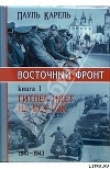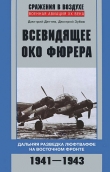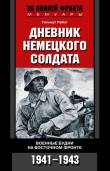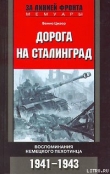
Текст книги "Rommel's Deutsches Afrika Korps 1941-1943"
Автор книги: Автор Неизвестен
Жанры:
История
,сообщить о нарушении
Текущая страница: 1 (всего у книги 19 страниц)



 Deutsches Afrika Korps
Deutsches Afrika Korps
For a period of some twenty-eight months of the Second World War, from February 1941 to May 1943, the battlefield fought upon by one German army extended across twenty degrees of longitude and through a sickle of Arab countries from Egypt to Tunisia. That German formation was conceived as a small contingent in approximately divisional strength whose task it would be to support the Italians and to act as a block against a British advance. It was to be subordinate to the Italians, on whose colonial territories it would serve and who had been fighting the British for nearly a year. This small unit rapidly developed to become the spearhead of Axis advances, commanded by a man whose plans and strategies were carried through often against the orders of his superiors in Libya, Rome, and Berlin. The German Africa Corps, as it was first known and under which title it has become a legend, rose in status to become Panzer Group Africa, Panzer Army Africa, and, finally in the closing months of the war, Army Group Africa.
But by whatever name it was known and under whatever conditions it fought this contingent, almost invariably inferior in numbers and supplies to its principal enemy Britain, was further burdened by being shackled to the less military potent Italian Army.
In order to understand what was so important about North Africa that years of fighting had to be conducted across its hot and desert wastes we must first consider the major combatant nations in relation to the area of the southern Mediterranean. The Germans, with whom this book principally deals, were drawn into that region because the demands of alliance compelled her to aid the weaker partner, Italy, who was there because of her geographical position. The presence of the other main protagonist, Great Britain, whom both Axis partners were seeking to drive from the Mediterranean, was due to Imperial policy. Britain's position needs to be explained in detail for the relationship of the Mediterranean with British foreign policies cannot be too highly stressed. To the Italians it was Mare Nostrum, but to the British it was the short sea route to the Imperial possessions in the Far East. The great inland sea and the land area surrounding it bound the continents of Europe, Africa, and Asia; there was no other region of the world which held this special strategic position of being at the epicentre of a world-wide war.
For more than two hundred years British Imperial strategy had been a maritime policy based upon British control of the seas. Through this control any land-based enemy could, in time of war, be blockaded into submission. Alternatively, being vulnerable to sea-borne attack at many points of his domain he could be financially ruined by being forced to the expense of maintaining a very large army to defend his territory against such attacks. British sea control would, at some time during that war, allow the Imperial strategists to establish a base convenient to some point at which the enemy was weakest and there, by rapid build-up, convert this into a springboard from which an assault on the mainland could be made. Then would be fought the decisive battle in conjunction with Britain's allies; a pre-requisite this for her own man-power resources were too small to allow her to dispose both a large navy and army.
Beginning in the eighteenth century Britain established her presence in the Mediterranean by the capture of Gibraltar and Minorca. A century later Malta was occupied and during the decades of the nineteenth century, as more bases were acquired at Alexandria and in Cyprus, the Royal Navy con-rolled the Mediterranean and thus the land and sea routes to the East. The British position was expressed in a single sentence by that great member of the Imperial Defence Committee, Lord Esher. 'Great Britain', he wrote, 'either is or is not one of the great powers of the world. Her position in this respect depends solely upon sea command – and upon sea command in the Mediterranean.'
In 1940 the Mediterranean and specifically North Africa was the only military theatre in which the British forces were fighting the enemy on land and the operations which were being carried out there, from the time of Italy's entry into the war until the surrender of the Axis armies in Tunisia, can be seen as a continuation of the traditional British policy. A proper acknowledgment must be made to each of the British bases there – Gibraltar, Malta, and Egypt – for these were the vital links in the Imperial chain which Britain strove to keep intact and which the Axis partners sought to break; but Egypt was the key to the whole southern Mediterranean. German grand strategy considered the possibility of a military pincer advancing along the northern and southern shores of the Mediterranean and aimed at the capture of the Middle East. The northern arm had a choice of three different routes along which it could thrust: through Turkey, from Crete into Syria, or else through die Caucasus; but on the southern shore the pincer arm had, of necessity, to go via Egypt for there was no other route. Barring the path of the Axis thrusts stood the forces of Great Britain and her Empire and the failure of Germany and Italy to capture and hold Egypt was a strategic defeat of immense importance.

The course and the outcome of the campaign in the desert was influenced, decided is perhaps the better word, by conclusions reached and orders given by the chief political leaders of Germany, Italy, and Great Britain, each of whom was thousands of miles removed from the battlefields and not one of whom comprehended the peculiar characteristics of desert warfare nor sympathised with the difficulties of their respective commanders in the field.
Mussolini grasped the political need to hold the Italian African empire but n his Army he had a tool which was too weak to carry out his grandiose plans. Churchill, the inheritor of Britain's traditional policies, was aware of the importance of the Middle East but, refusing to accept the limitations of logistics, interfered with the plans which his generals on the spot had drawn up and demanded offensives or expeditions for which the British Army in the desert, for all the Imperial resources upon which it could draw, was too weak to undertake with any guarantee of success, at least until the middle of 1942.
Hitler, a central European, had little idea of the Mediterranean strategy and thus he had no detailed, long term plans for the German contingent which he sent to aid the Italians, except the vague concept of a southern pincer arm. What reason compelled him to support his weak ally? Hitler knew that the Italian Army and Air Force needed to be completely re-equipped if they were to play their part in a highly technical and industrial war, just as he knew that Italy had no natural mineral deposits and needed to import most of her basic raw materials. His Axis partner considered from an economic and military point of view was a broken reed and yet Hitler supported her. The answer to this question lies, perhaps, in the emotional debt which the German Chancellor owed to the Italian Duce. In 1938 Mussolini had stood apart when Austria was invaded and Hitler's telegram to his ally at that time 'Mussolini, for this I shall never forget you', found expression in later years when the need to help Italy arose. Hitler remained loyal to the Rome—Berlin Axis and was determined to maintain it even though his partner was a burden. This political line was echoed by his military subordinates who used the Führer's loyalty as an argument to defend political and military decisions which had been made. Even as late as December 1942, when it was clear that Italy was collapsing and that the whole area of the southern Mediterranean was passing under Allied control, Kesselring, the German Supreme Commander South, defended Hitler's decision. During a discussion with Buerker, commanding 10th Panzer Division, Kesselring was asked point-blank why the Tunisian bridgehead was not evacuated. Buerker pointing out that German-occupied Europe was proving too big to be successfully defended then asked what was so important about Africa that it had to be held at any price? Kesselring echoed Hitler's credo that to give up Africa would present the Italians with an opportunity to leave the Axis partnership.
Thus politics and not military sense dictated the orders, shaped the plans, and dominated the strategy which moved Rommel and his men like pawns. That commander saw with bitterness that as the war against Russia went increasingly badly the High Command relegated Africa to the status of a side-show denying to the Africa Corps and its successors those supplies of men and material which might have enabled it to win victory for the Axis. Only when the tide had turned did Hitler realise the danger and tried to reverse the situation by sending across the Mediterranean fresh men and arms. But he was too late; he was only reinforcing defeat. Those men and that material which survived the double gauntlet of the Royal Navy and the Royal Air Force, passed into Allied hands shortly after landing on African soil.
The principal battlefields during the years of war in the southern Mediterranean lay in the area between El Agheila and El Alamein, and through that region ran Via Balbia, the only all-weather coastal road. Possession of that highway dominated the fighting for the pattern of military operations was the same whether it was the Axis or the British who were attacking. The armour – ould come up out of the desert in an enveloping or encircling operation, while the infantry and the less mobile forces kept close to the Via Balbia, fighting to capture one of the three major ports into which would come the ships to nourish the next advance. The lack of originality in the strategy of the successive offensives was not due to the rigidity of military thinking but to the r'act that neither side had the capability to mount a seaborne landing behind the enemy front.
Peculiar to the war in North Africa was the fortunate fact that for most of :he time no great numbers of civilians were involved. The civil population was small and concentrated chiefly into a small coastal strip. The rival armies could, therefore, manoeuvre and fight in the southern deserts knowing that ±eir destructive operations were not endangering the great mass of the native population. A second factor of the desert war was that this was the first completely mechanised war to be fought by both sides in the western hemisphere. Because of the enormous length of the battle zone – only those of the Soviet Union were greater in extent – and the absence of railways, movement had to be by mechanical transport. With the exception of the stallion, upon which Mussolini intended to ride in a victory parade in Egypt, a few mounted patrols, and mule trains which were used at times in Tunisia, there were no -horses on active service in the African theatre of operations.
The third distinctive feature of the desert war was that no SS combat units fought there. A small SS security office was opened in Tunis but its personnel were not fighting troops and thus the area of the southern Mediterranean was spared the actions and reactions which were suffered in other places. German writers describe the fighting as chivalrous and this was not surprising for, through the war in the desert was hard, both sides had a common enemy, the resert itself, for this could be viciously cruel to the weak and helpless. A lefeated enemy had to be helped to overcome the hardships of that region and thus there grew up the legend of the 'gentlemen's war'. Certainly it had pace, scvle, and, above all, colour. The men of all armies which fought there emerged with a certain flair and, semper aliquid novi ex, Africa (as always something new comes from Africa), that continent was the fount of many new lieas on armoured warfare tactics, dress, and language which then gained currency and passed from the southern Mediterranean into other battle zones war was a drab and unromantic misery.
Chapter I Background to War
In the years immediately preceding the outbreak of the Second World War the political influence of Fascist Italy was at its peak and the period which Mussolini had spent in office had brought to the Italian people not only a certain stability and prosperity but also prestige, for in certain European political circles Mussolini's many years in office had given him the aura of a fairly young elder statesman, a role which he played to perfection during the Munich crisis of 1938. True, he had been responsible for a small number of short colonial wars in North Africa but these had been successful and had enlarged the Italian colonial empire.
Libya, the name given to the three territories adjoining each other in North Africa and all bordering the Mediterranean, was the oldest colony and had been conquered in 1912. Tripolitania, its most westerly region, was mostly desert and was consequently poor; its economic wealth was vested in two million date palms. Its greatest value lay in its strategic position, for it was only 250 miles removed from Sicily and thus could be regarded as a base from which an attack could be launched upon either the British in Egypt or the French in Tunisia. Marmarica, the eastern province, was also a poor desert territory. Only Cyrenaica had been extensively settled by Italian colonists and had, therefore, been subject to European influence in matters of agriculture, architecture, and attitudes. Running the entire length of the Libyan coastline was a thin strip of fertile land within which had grown up towns and harbours which were to be of greater or lesser importance to the future conduct of military operations.
Although Mussolini in the years immediately preceding the outbreak of war had seemed to be in a very strong position his blatantly aggressive attitudes, his intervention in Spain, and his formation of a political Axis with the even more aggressive Third Reich had so alarmed those countries which bordered on, or had influence in, the Mediterranean that they took combined measures against him. Thus when Italy entered the war in June 1940, the two most powerful nations in the Mediterranean, France and Great Britain through their naval and military bases – the British at Gibraltar and at Alexandria, the French at Toulon, Corsica, and Tunisia – held Italy encircled and confined; a prisoner in the central Mediterranean.
Even though France fell the Royal Navy and the Royal Air Force operating from the chain of British bases stopped supplies of arms and men reaching the Axis armies and thus starved them, for the deciding factors in the North African war were whose ships ruled the waves and whose aircraft dominated the skies. Until the middle of 1941 the Axis powers under the cover of the Luftwaffe and the Regia Aeronautica's air superiority had built up their armies almost unopposed, but from the last months of that year to the end of the war in Africa theirs was, for the greatest period of time, the inferior position. The bravest, most imaginative and brilliant commander leading an army in a theatre of operations overseas from his homeland is only as strong as his supply lines. Cut these and his brilliant, wide-ranging, strategic sweeps are halted: the tanks become static, immobile, and useless steel boxes; the guns, starved of shells, fall silent.
In an area as vast as North Africa losses of territory were not important and even casualties were relatively minor calculations in the military equation. The most important factor was which of the combatant powers had the resources to replace the losses and the ability to bring fresh men and supplies to the commanders in the field. The Axis powers were never able to increase significantly the numbers of men which they could put into action, neither could they equip them. The British, on the other hand, could and did reinforce their armies with new men and modern equipment even though the convoying of this material was carried through under the most difficult and dangerous conditions.
As a result of the Rome—Berlin axis which had been formed in 1939, Germany had been drawn, imperceptibly, almost against her will, and certainly against the inclinations of the Oberkommando der Wehrmacht (OKW) – the High Command of the Armed Forces – into Mediterranean affairs, and these were to have a profound influence upon the conduct of the war. It is a surprising fact that the Axis powers had not held joint consultations on military co-operation and in the only discussions which were held before the outbreak of war the Italians had requested not to be asked to undertake hostilities until 1943, by which year they anticipated that the expansion and modernisation of their armed forces would have been completed. The German delegation agreed, for their country too was undergoing a modernisation and expansion programme which would not be finished until the same year. The OKW hoped, rather naively, that Hitler would not embroil Germany in a war until that year. Thus both Axis partners, unprepared for war, went into hostilities without having had an exchange of ideas and certainly without having had discussions on joint military strategy, planning, or co-operation.
In August 1939, as if to und'erline the demand by the military for time to prepare the army, Mussolini declared that Italy would take no part in the war which had just broken out but that she would still remain in the Axis. This quasi-neutral position was abandoned during the campaign in France when Mussolini, fearful that Italy's influence in Hitler's new, restructured Europe would be too small, declared war. This declaration, made on 10 June 1940, a direct rejection of the advice given to the Duce by Badoglio, the Chief of the General Staff, that Italy could not sustain a long war against the western Allies, spread hostilities into Africa. As a result of the defeat of France, the French colonial territory of Tunisia had become a neutral power, Libya was no longer a buffer between the African territories of France and
Great Britain and Mussolini could now turn the colonial might of the Italian empire in North Africa against the British in Egypt. The Germans, too, having defeated France could now concentrate upon the single enemy Britain and, during July, von Brauschtisch, C-in-C of the German Army drew up a plan with five alternatives for future operations in the Mediterranean. Included among these alternatives was the seizure of Gibraltar and the despatch of a panzer unit to support the Italians in their war in North Africa. If both these operations were successfully executed then British influence in the Mediterranean would be destroyed and it was, perhaps, considered that Malta would then fall of its own accord for, surprisingly, no plan was put forward for an attack upon that island.
A far-seeing staff officer at Oberkommando des Heeres (OKH), Army High Command, had prepared a monograph on the development of the campaign in Africa in which it was proposed that a panzer Corps be sent to aid the Italians, and the OKH planning section was able to report that sufficient vehicles and military stores could be made available to form a Corps. Hitler had also been thinking along parallel lines and having studied the staff paper then asked certain questions, the most important of which was how soon such a Corps could be ready for action. OKH replied that the movement of troops, their transportation, acclimatisation, and the shipping of the necessary equipment would not permit the force to be used in combat operations before December 1940. Discussions at OKH then revolved around the intention to send a two-division expeditionary force to Africa.
Meanwhile in Libya the declaration of war by Mussolini had caught the Army off-balance. So sudden had been the Italian dictator's volte-face that the military was completely unprepared for the demands which were then made upon it and which were to be made at later dates – irrespective of whether these were defensive in character, that is to say, to halt a British attack or whether they were offensive, that is, to invade Egypt. Mussolini ordered an advance into Egypt overriding the advice of Marshal Graziani, the Commander-in-Chief in Libya, that an offensive should not be undertaken until the spring of 1941, by which time there would be an Italian Army capable of meeting the Duce's imperious demands for glory and victory.
The Italians thrust into Egypt on 13 September 1940 and had reached Sidi Barani on the following day. Here Graziani halted to prepare the next step of the advance which he anticipated would bring him to Mersa Matruh by December. In Germany Hitler had reconsidered the African venture proposing that it might be more advantageous to the Italians if units of brigade strength were sent and his proposals were passed to the Italian Military Attache in Berlin. [1]
When Hitler and Mussolini met in the Brenner Pass during October 1940, these intentions were discussed more fully and it was decided to send a small but powerful, armoured brigade to North Africa and that the men for this unit would be drawn from 3rd Panzer Division. It was also proposed that this unit together with VHIth Air Corps would be placed under Graziani's command. On 24 October Hitler received a pessimistic report from General von Thoma whom he had sent on a fact-finding mission to Libya. The burden of von Thoma's memorandum was a statement which a succession of German military commanders were to repeat without avail to the end of the war in Africa, namely that a successful conclusion to operations in that theatre depended upon the ability to supply the forces in the field. He went on to stress that, as a result of British control of the seas and the poor harbour facilities in Libya, it would not be possible to supply a force larger in size than four divisions but that this was the minimum strength required to bring victory.
Hitler rejected Thoma's appreciation and his counter proposal of a single division to be sent to Africa was in turn dismissed by Thoma who said :hat a single German division could not affect the situation. Hitler stated his belief in the ability of the Italians to maintain their position against the British and repeated that the whole purpose of sending a German contingent was to hold Italy loyal to the Axis, a statement of intent which was to be echoed by senior German officers in the Mediterranean theatre for the next two years. In November Hitler ordered that the embarkation of 3rd Panzer Division was to be halted and that no movement of German troops was to take place ontil the Italians had captured Mersa Matruh in Egypt. A formal declaration of intent was expressed in Instruction No 18, issued by OKW, on 12 November 1940, which stated under the heading The Italian offensive against Egypt' that,
'German forces will be used, if at all, only when the Italians have reached Mersa Matruh and in the first instance these will be Air Force units for whom the Italians will have provided aerodromes. The Armed Forces are to prepare for the employment of their units in this or any other North African theatre of operations:
Army: The Army will hold ready for use in North Africa a panzer division.
Navy: The Navy is to convert ships lying in Italian ports into troop transports with which to convoy strong bodies of troops with best possible speed to Libya, or to some other place in North Africa.
Air Force: The Air Force is to prepare to carry out air operations against Alexandria or the Suez canal and to block the latter so as to deny its use to the British.'
During December while the euphoria of victory was yet with the Italians further discussions took place between the Axis Supreme Commands at Innsbruck, during which Graziani expressed Mussolini's intention of fighting the war in Africa without German help. In view of this declaration 3rd Panzer Division was stood down and plans for German intervention in Africa were no longer proceeded with.
The British forces, which were fighting against the Italians, were few in number and were spread over a 200-mile area from Sollum, on the coast, to the Siwa Oasis. The weakness of this force did not deter its commander General Wavell from undertaking an offensive and the mass of his Army of the Nile struck out of the desert and into the Italian flank on 9 December. Collaborating closely with the Royal Navy and the Royal Air Force, WavelFs 30,000 men defeated an Italian Army ten times its number. By 11 December, Sidi Barani had been recaptured, on 5 January 1941 Bardia fell, Tobruk followed on 23 January, and by February British and Imperial troops had occupied Marmarica, most of Cyrenaica, and much of Tripolitania. But then with his forces exhausted and his supply lines over-extended, Wavell halted the advance along the edge of the great Sirte Desert. Before him lay the remnants of the broken Italian Army whose remaining unshattered units were preparing to dig in around the capital city of Tripoli ready to fight the final battle. With the loss of Tripolitania the whole of Libya would pass under the control of the British who would then be able to turn upon and conquer the Italian Somaliland and Ethiopian territories piecemeal. It was, therefore, vital to the Axis war effort that a foothold be retained along the North African coast and this bridgehead expanded to form a firm base for future operations aimed at the recapture of the lost provinces and to prevent the British establishing a base from which to attack Sicily and the Italian mainland.
It was against this background of urgency and Italian despair – the defeat of Graziani's 10th Army coupled with the reverses which other Italian armies were suffering in the war with Greece – that Mussolini was forced to ask for that German assistance which he had declined. Hitler responding to his Axis partner's needs reactivated the plan to send a German force to Africa. The first results of this support was an air raid upon Malta on 10 January by machines from Xth Air Corps but help was needed more urgently on the ground and a memorandum to this effect, handed to the German liaison officer with Commando Supremo (Italian Supreme Headquarters) was forwarded to Hitler. His reaction was immediate and on 9 January he decided to send a blocking force to Tripolitania, outlining his intentions in Instruction No 22, dated 11 January. In the section which dealt with events in Africa he wrote:
'The situation in the Mediterranean demands that for strategic, political and psychological reasons Germany must give assistance ... (to Italy) ... and I order that a blocking force be raised by OKH which must be capable of supporting our allies against British armour in their defence of Tripolitania. Preparations must be concluded so that this unit can be shipped to Tripoli in conjunction with an Italian armoured and motorised division.'
The critical situation in which the Italians now found themselves as a result of the loss of Tobruk, one of their main bases, produced the urgent demand from General von Rintelen serving at Commando Supremo that a German unit strong enough to operate offensively and not merely as a blocking force be despatched without delay. His appreciation of the situation was shared by General Funck who had returned from a visit of inspection to Libya and who reported that Graziani's intention was to convert Tripoli into a fortified town. Funck proposed that a panzer Corps be sent to carry out an offensive to regain Cyrenaica. Hitler then entered one of those periods of indecision which bedevilled his relations with his commanders and his allies and could not make up his mind on either the necessity for, or the nature of, the German formation to be used in Africa. To the request to increase greatly the strength of the blocking force, OKH replied that such an increase would have to be taken from the forces being assembled for the campaign in Greece and that this in turn would weaken the forces to be used against Russia.
The OKW, proposed in turn that the blocking force be reinforced, in the first instance, only by a panzer regiment and that at later dates other components of a panzer division could be sent across to Africa. It was also proposed that the German and Italian mobile, that is motorised and panzer, units be under the command of a German Corps commander. Hitler weighed the disadvantages that would accrue from the loss of the Italian colonies against the advantage of successfully intervening in Africa, reached his decision, and issued instructions to begin embarking troops. But 3rd Panzer Divisions had been stood down and a new formation needed to be raised. Into this new division entitled 5th Light was incorporated 3rd Reconnaissance Battalion, 39th Anti-tank Battalion, a light artillery battalion, a panzer company, and a medical company. The special tropical service fuel and ammunition, water filtering equipment and water cans which had been assembled for 3rd Panzer was also taken over by 5th Light.
There were daily meetings and arguments with the quartermaster's department of the Army which was involved with preparations for the attack upon Russia and who, lacking other criteria, based their calculations for the requirements of the new force upon European campaigns with adequate water supplies and good roads. The division scale of transport was finally laid down at only two-thirds of the requirements which the divisional officers had demanded. Preparations were then made to ship the first units across to Tripoli, and these were to be followed by 5th Panzer Regiment which in turn was to be reinforced by a second panzer division.
On 6 February Hitler then gave instructions that the blocking line was to be as far east as possible – in the Sirte Desert – and also ordered that the role of 5th Light Division was, initially, to be one of aggressive defence. On the same day OKW issued its own orders to commence Operation Sonnenblume – the transport of German forces to Tripoli. The Africa Corps was on its way.








